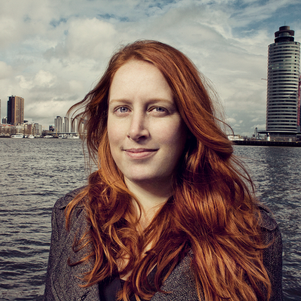Prof.dr.ir. A.L. Nillesen
Professor of Urban Design
Department of Urbanism
Anne Loes Nillesen explores the impact of transitions such as climate (rising sea levels, heat and precipitation), mobility and circularity on cities. She is specialised in challenges at system level that require insight in complex mechanisms across different scale levels, such as for instance climate change and the agricultural transition. Thanks to her practical experience, she is able to contribute valuable insights to the academic world and vice versa.
As the founder of Defacto Urbanism Anne Loes Nillesen's daily work involves the application of research by design to demonstrate and explore how such transitions affect towns, cities and regions. "The objective is to develop design principles and strategies which improve the quality of urban areas. To do so, the integration of research and design is essential. A good designer also applies a design perspective during the research phase."
Approach
Anne Loes Nillesen's method involves an integrated system approach, that focusses on aspects such as soil and water systems, ecological systems, material flows, or logistical networks. She applies a 'what if' design approach, in which logical connections and mechanisms are used to systematically explore the impact of possible policy choices, scenarios, or developments on cities or urban regions. One of the challenges for students is the use of data as input for design processes. Sometimes, a great deal of data is available and its interpretation, in other words which data should be used and how, is a challenge. By contrast, sometimes only limited data is available in an international context and the challenge then is to nevertheless find a way to come up with the right interpretations and hypothesis. In both cases, work sessions with multidisciplinary experts and (local) stakeholders are an essential part of the research and design process.
Flexibility
During her projects, with a strong international focus, incorporating sufficient flexibility is essential. "We are facing societal challenges and changes which require long-term strategies with room for adaptation. These include climate change, energy transition, urban growth and the circular economy. We can't always predict what the impact of developments or policy ambitions will be. As a designer you therefor have to in your design allow for various development perspectives over time."
Teaching
Anne Loes wants to show students how they, from their discipline, can contribute in addressing todays challenges. She wants to show students how broad the professional field is. Within the university she wants to contribute to inter-faculty collaborations, for example by together with students and researchers, examining the changing role of experts within integrated projects.
